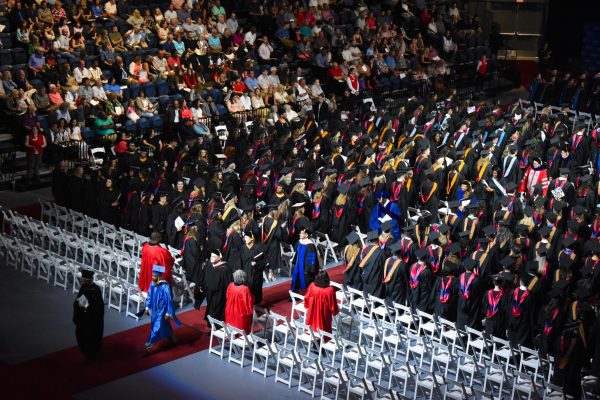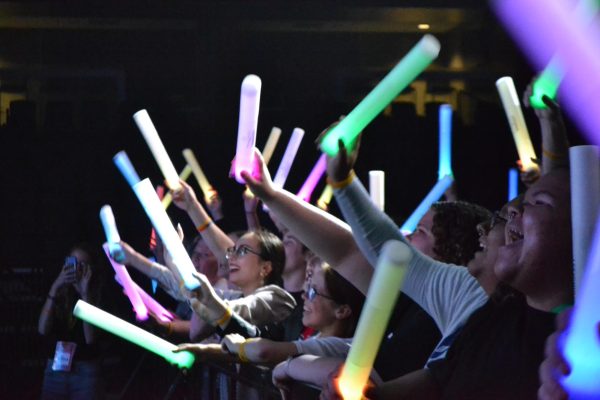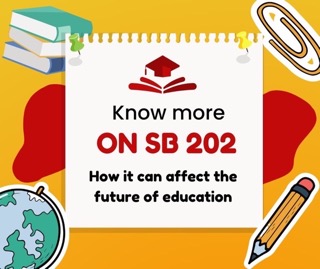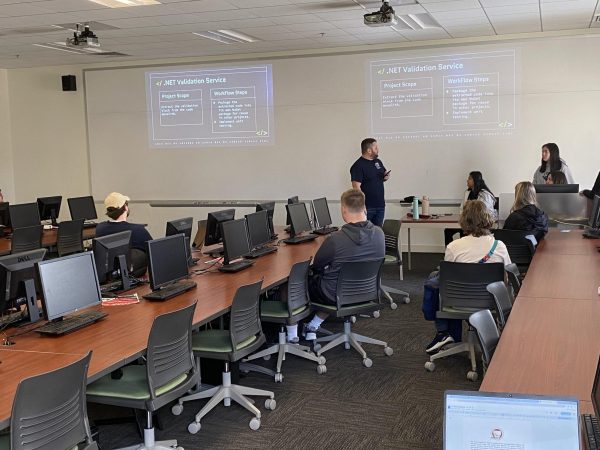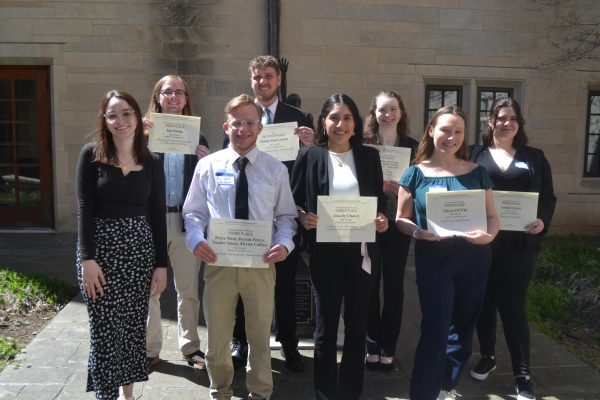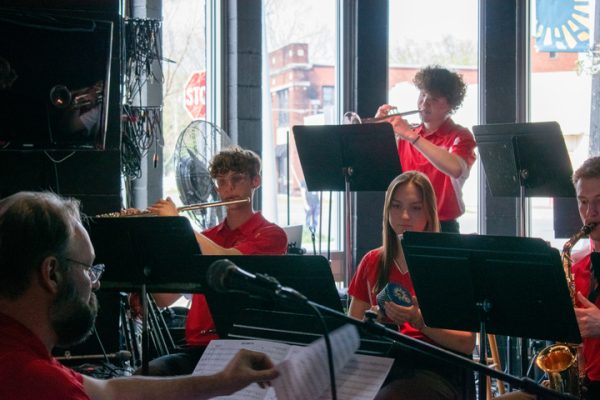Trustees approve tuition increase
The Board of Trustees approved tuition increases for the 2019-2020 and 2020-2021 academic years at a special meeting of the Board of Trustees June 4 in the Griffin Center.
Following a public forum on the increases in which there was no public comment, the Trustees agreed to raise tuition for full-time, undergraduate, resident students by $157 in 2019-2020, bringing tuition costs to $7,986. The 2020-2021 tuition increased by 4% bringing the total to $8,146.
Full-time, undergraduates, non-residents will see their fees increased to $19,295 in 2019-2020 and $19,682 in 2020-2021. Full-time, graduate, resident students will see their tuition bumped to $11,842 in 2019-2020 and $12,080 in 2020-2021. Full-time, graduate, non-residents’ tuition is set at $23,144 in 2019-2020 and $23,608 in 2020-2021.
Vice President of Finance and Administration Steve Bridges said the increase was made in order to meet operational and utility costs.
The recommended increase from the Indiana Commission for Higher Education was anywhere from $0 to $167 and Bridges said the student fees are still one of the lowest for public universities in Indiana.
“We remain the most affordable public institution in Indiana excluding some of the regional campuses and we keep that in mind when looking at tuition increases,” he said.
All other public universities in Indiana are also raising their tuition except for Purdue University, which is continuing it’s tuition freeze for the 8th straight year.
The university did receive increases in both years of the biennial budget from the state, which granted it $900,000 additional funding in 2019-2020 and $700,000 new money in 2020-2021.
Funding for state universities is determined by performance funding formulas, which calculates metrics like degree completion and student persistence. Any new funding is reallocated into a higher education pool. Universities must then earn that money back by performing well under the funding formulas.
Bridges said the impact of decreasing enrollment also factored into the Board’s decision.
“Certainly decreasing credit hour revenue has an impact on what we need to do at an affordable price,” he said.
Enrollment last fall dropped below 9,000 students for the first time in 15 years.

